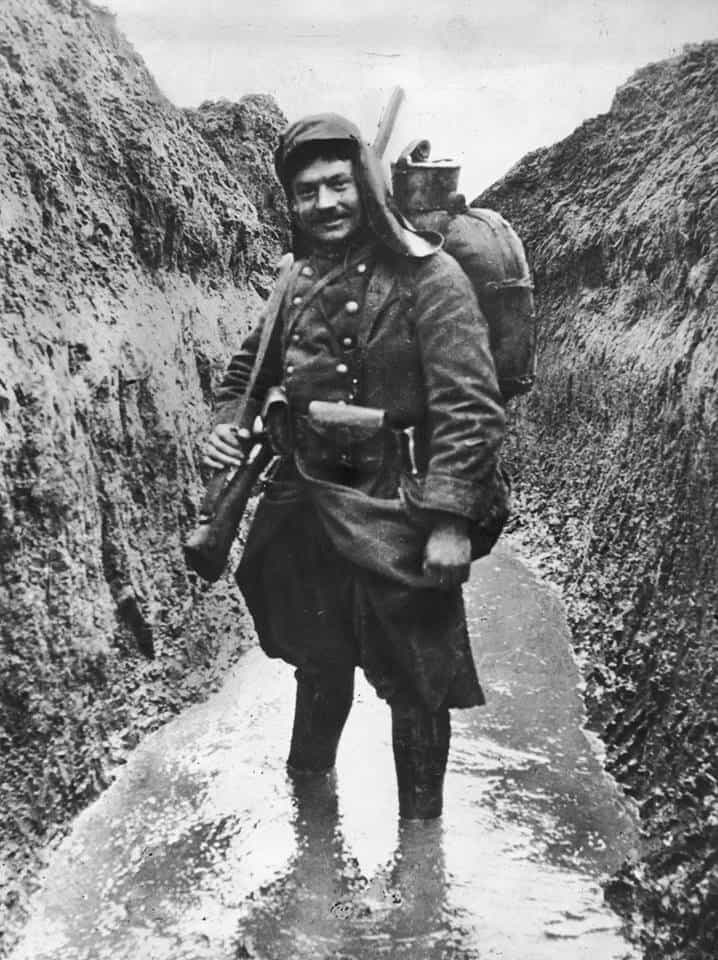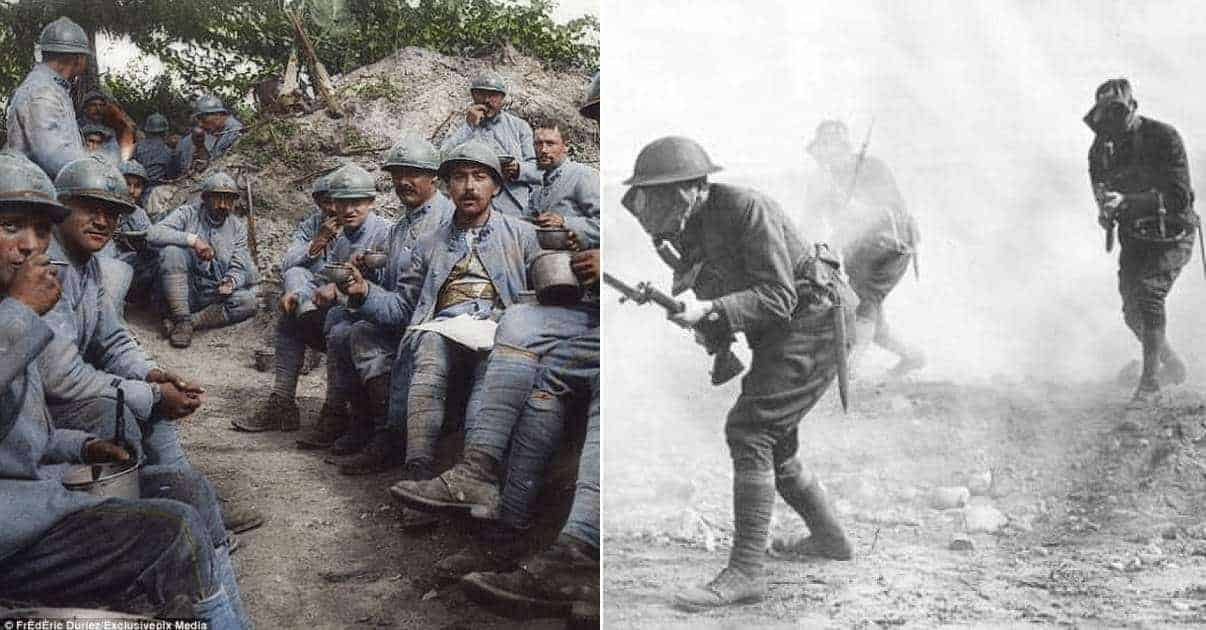While, trench warfare had been a part of siege warfare for centuries, never before had it been witnessed on such a scale as it was during the First World War. On the Western front, the largest front in European military history, millions of men fought along hundreds of kilometres of trenches organised as two dense networks of ditches between one and two kilometres wide on each side. “No man’s land” separated the opposing armies, sometimes by several hundred metres, but at times by only a few dozen.
Differences between French and German trenches
The fact that trenches allowed for movable, protected and concentrated fire from the infantry made them so difficult to conquer. Communications trenches connected the front line to the second. Units rotated among these successive lines of defence, which were protected by dense curls of barbed wire. Each trench was dug in a hatched pattern so that even if enemy soldiers entered a trench during an attack they could not fire down its entire length.
According to historian, Leonard V. Smith, the poilus, (or “hairy ones”, as the French soldiers became known due to their long hair and beards,) in the trenches faced new weapons, new rhythms of life and death, and constant danger.” As most of the Western Front was located on relatively flat terrain in a wet climate, with the water table quite close to the surface, “ever-present mud, the regular flooding of trenches, and the general confusion of physical space profoundly shaped soldiers’ experience.”

French trenches paled in comparison to their German counterparts. Whereas the poilus had to endure the insanitary conditions of their own trenches, the Germans used the most advanced building and mining techniques to create deep shelters, which were often lined with concrete, some of which had ventilation and heating systems – amenities which were unheard of on the French side. As a result, the French Army suffered a high death rate beyond the casualties inflicted by the enemy during World War I. Recorded cases of sickness amounted to five million for the four years of the war, though this figure includes soldiers reported ill on several occasions.

